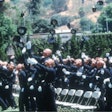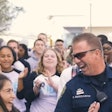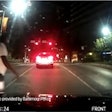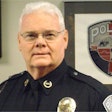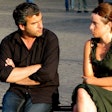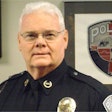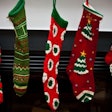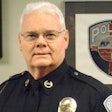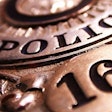This issue keeps coming up, so I'll share my advice with you. The other day a young officer inquired about off-duty actions and equipment. I am not going to belabor the handgun/caliber debate and the litany of could/would/should carry items. Sometimes I think I carry a backpack full. But his question focused on how to act, so here goes.
Keep it Simple
Communication is the key here. If you are calling in a police action and getting involved or even considering it, a cell phone is a must. Calling in your observations is one thing, but how you are dressed and if you are armed are also key points here. One thing that the responding officers want to know is who the bad guys are and who are the good guys. We do not have white hats to wear off-duty for easy identification.
We are not doing the fashion column here, so keep your description of yourself simple with colors. For me, my description would be white guy, mid 50s, gray hair, black golf shirt, blue jeans, and sneakers. They do not need to know the brands of jeans and sneakers. We are cops, not the fashion police.
For calling in on the cell phone, know a few tidbits. Are you in or out of jurisdiction? If you are traveling out of state, most state patrol has a special number instead of 911. For instance, Georgia is *GSP. If you live out of your primary jurisdiction, do you have a precinct or local station number stored on your phone that you can easily dial?
When you call in, use plain speak! Your codes and signals probably mean nothing to them. Another problem is that you may not know where the heck you are. Even on vacation, do not ride around oblivious to the world... pay attention to streets, locations, highways, exits, or something. Do not rely on blind luck; stay aware of your surroundings.
Keep Your Cool
Do not get embarrassed or angry if you get treated like a citizen -- or worse, a perpetrator. I always believe in providing two visuals and one verbal means of identification. You should have your shield with your credentials. Anyone can have a badge; the credentials offer the credence. If you are off-duty, it is rare to have a raid jacket or something like that, so make sure you at least have the shield. For the verbal, keep it simple but loud: "I am a police officer" or "Police." If you repeat it long enough and loud enough, somebody will get the hint.
Now, not all responding officers may get the information or have opportunity to seize the moment. You could get a weapon pointed at you, be talked to abruptly, and even get put on the ground. Before you even say a word, put yourself in their shoes. If the nice on-duty officer tells you to turn around slowly and drop your gun, do what the nice officer tells you to do. Friendly fire is not friendly.
Keep it Civil
When it is all said and done, thank the responding officers and be respectful. You are a visiting player on their court. They may take your information and call later. They could request a statement or ask you to go down to the station. I do not care if you have tickets to the big game and you could miss the kick-off if you stick around; you are the one who stopped and decided to get involved in their game, so play by their rules.
Finally, if they did have to get involved with you, shake hands and leave on good terms. They are probably feeling bad as well that they did this, but it is a safety mechanism that they too are trained to do.
There are no programs to provide background info in life like there are at the big game. Sometimes you need a program to know who the players are, and in the streets we do not have that luxury.
Train to think; there are no simple situations.






